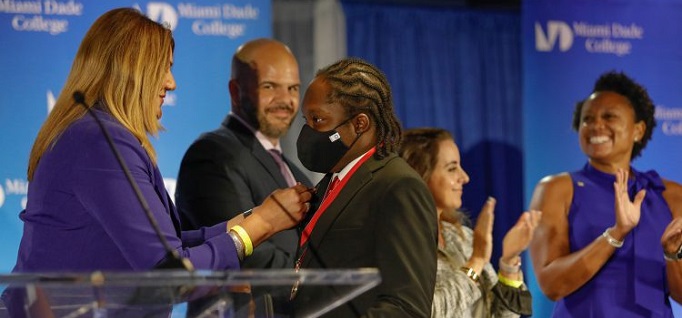Closing gaps for Black scholars
By AACC 21st Century Center Staff
July 13, 2021
A Florida college is acting to eliminate internal student success gaps and achieve equitable outcomes.
On June 15, Miami Dade College (MDC) welcomed the inaugural class of its Rising Black Scholars Program in a ceremony. The program promotes academic excellence and equity and a level playing field by providing financial assistance, support services and resources to Black students. Not only will these supports help ensure their academic success, but they also will foster a sense of belonging.
A cohort of 150 students will receive free tuition, a book stipend, laptop, tutoring and other resources. Some of the program activities include financial awareness and literacy training and career planning.
“Our main goal is to develop the social, financial and personal capital of our Rising Black Scholars by giving them a head start this summer with a comprehensive program that will enhance retention, completion and success outcomes,” Student Life Director Nicole Bryant said in an article in the Miami Dade College Forum. Bryant also is co-chair of the Black Scholars engagement subcommittee.
A 2020 college study revealed an opportunity to increase student enrollment, retention and completion in the Black community. Black students comprise 15% of MDC’s student population, which is less than their countywide representation. Their stop-out rates are higher compared to other students. And while Black students at MDC graduate at higher rates than students at the national level, there is a 5% gap between their graduation rate and other students at the college.
“We want to ensure that Miami-Dade County has a talent pipeline that reflects our community,” MDC President Madeline Pumariega said, “and that we create economic mobility pathways for all of our students.”
MDC is leveraging its community networks, student support services and faculty to close the gap. Community partners include 100 Black Men of South Florida and 5000 Role Models of Excellence. The program is funded by a $1 million donation from the MDC Foundation and support from the Mitchell Wolfson Sr. Foundation.



